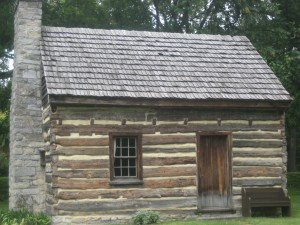My kids and I enjoy reading together. This year we have been working our way through the Little House on the Prairie series by Laura Ingalls Wilder. While my kids are mainly interested in the adventures and experiences described by the pioneer girl, I have been struck by the lessons we can learn about innovation and productivity.
1. Making do with what they had: The pioneers were nothing if not resourceful. They often lacked the specific tools or equipment they needed for a job, so they had to be creative to find ways to make what they needed. As the saying goes, necessity is the mother of invention, and the pioneers had plenty of necessities to spark their inventive minds. By employing their ingenuity, the pioneers were able to do more with less.
2. Modeling an industrious ethic: Whether they were plowing and planting a field, caring for their work animals, or repairing broken fences, the pioneers were a hardworking lot that knew how to rise early to accomplish the tasks. Their survival often depended on whether the harvest was brought in on time, so they did what had to be done to meet the deadlines.
3. Building from the ground up: When the pioneers traveled west, they were marking new territory, starting from scratch. Settling in a new place usually meant building a house, plowing a field, and planting seeds for a new life. This took a lot of work to tame the land. For instance, before a field could be plowed, trees often had to be cut, roots removed, and stones cleared from the field. Then the sod could be turned and prepared for planting. But the pioneers embraced the hard work and blazed the trail for those that would follow.
4. Embracing challenges, hardships, opportunities, and adventure: Heading to a new and unsettled area was filled with challenges and hardships, but the pioneers focused on the opportunities and adventure that accompanied the journey as well. They knew the road would be hard, but they were willing to do the work in order to reap the rewards.
5. Recognizing the value of community: Tales of pioneer traditions offer an insightful look at the importance of relying on community for safety and help. Pioneers heading into unknown areas often traveled together, forming wagon trains for safety and assistance. When a new settlement began to form, the pioneers were known for being neighborly, helping each other with building and harvesting. For instance, barn raisings brought many families together to build a barn in a day for a new family.
6. Motivated by a vision for a better future: Ultimately, the pioneers were willing to tackle the challenges and uncertainties because they were motivated by a vision for a better future. Whether they were pursuing promises of free land or the possibility of finding gold, the pioneers believed the fresh start would payoff in the end. They envisioned new found freedoms in unsettled territories, rich farmland for abundant harvests, and a meaningful inheritance to pass to their children.
Please share your comments below. How do exhibit the pioneering spirit?
